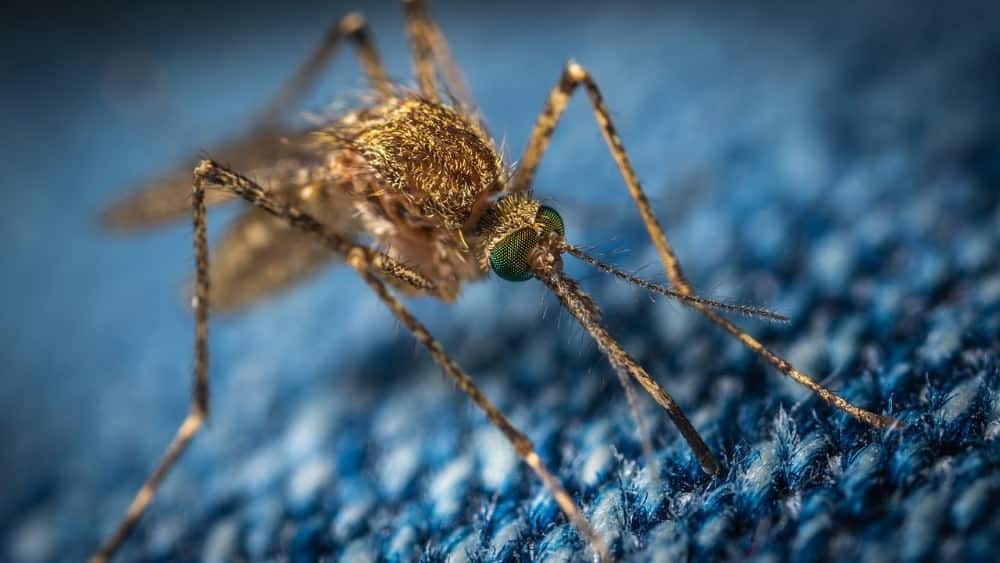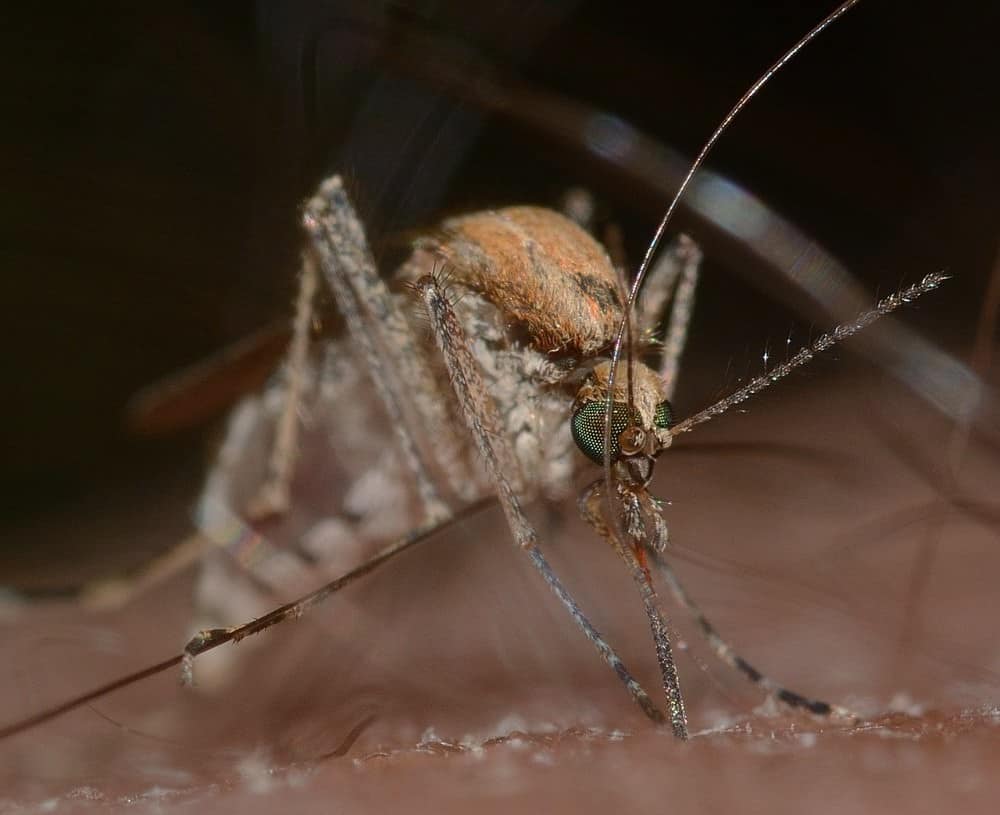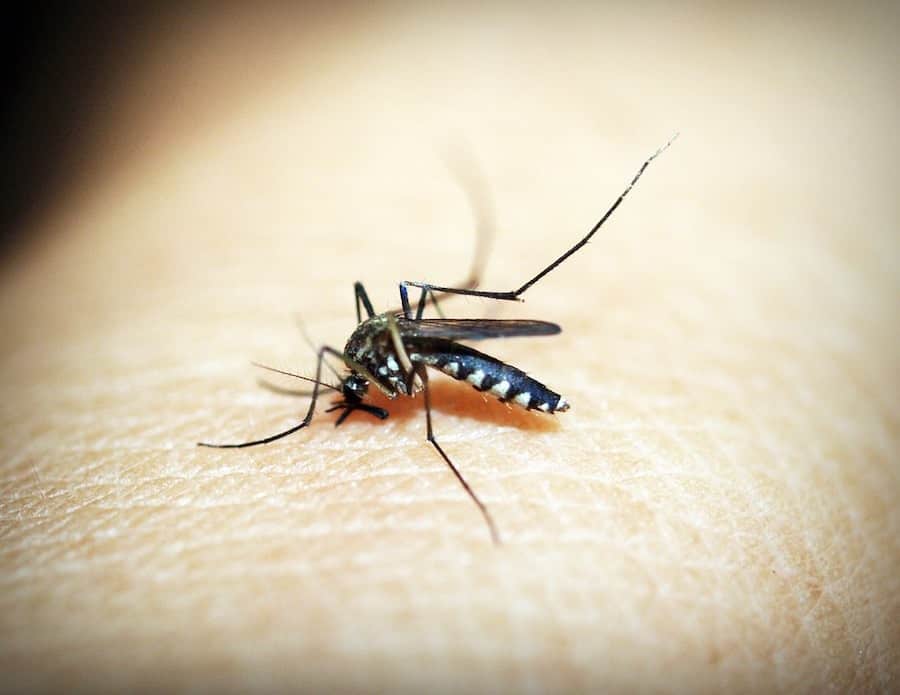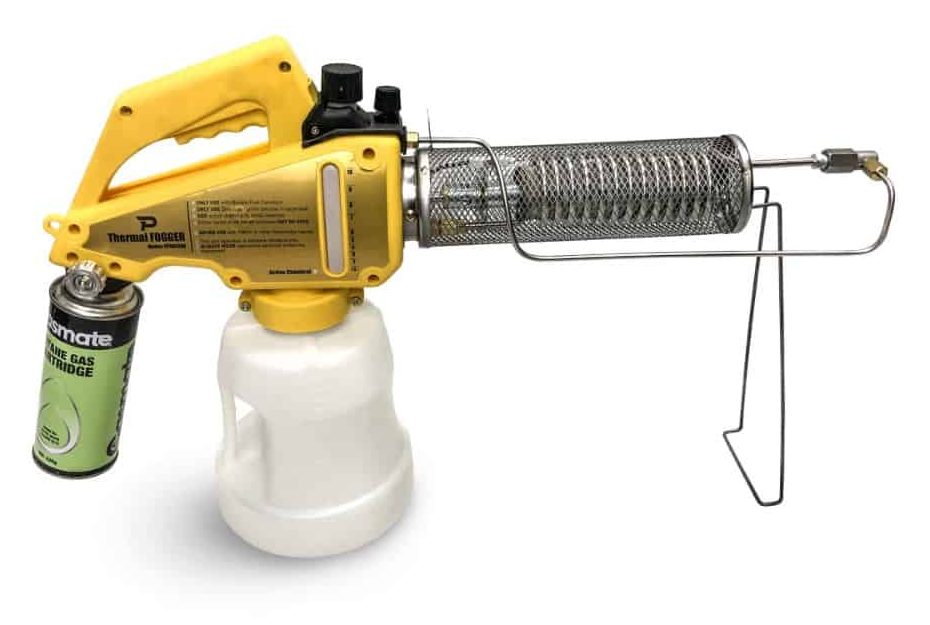Best Mosquito Repellent Spray
For such a small creature, mosquitoes bring misery with them wherever they go.
These nasty, biting insects can easily ruin a hiking trip or a fun summer evening in the backyard, leaving you feeling itchy and sore.
Luckily, you don’t have to resign yourself to suffering the bites of these uninvited guests all summer. By using a good-quality repellent, you can once again venture outside with confidence and enjoy the great-outdoors.
In this article, we take a look at some of the best mosquito repellents and how they work.
How Do Mosquito Repellents Work?
For the vast majority of people, mosquitoes are little more than an irritation. Their bites can leave our limbs itchy and sore, but they rarely cause us any more harm than this. However, in a large part of the world, mosquitoes are more than a nuisance. They spread deadly diseases via their bites, resulting in over one million deaths every year.
Therefore, mosquito repellents not only prevent discomfort, but they can also actually save lives. Whether you are staying at home or traveling abroad, having an effective mosquito repellent on hand can save you from suffering.
The most commonly used chemical repellent is called ‘N, N-diethyl-meta-toluamide,’ or ‘DEET’. You will see this ingredient listed prominently on the bottles of almost all well-known brands of insect repellent.
DEET is a man-made chemical which is extremely effective at repelling mosquitoes and other biting insects. It was initially developed by the U.S. Army in 1946 to protect soldiers fighting in jungles from diseases carried by mosquitoes. DEET was approved for use by the general public 11 years later, in 1957.
Nowadays, DEET is used every year by approximately 30 percent of the U.S. population. It is available in many different formulations, from roll-ons and wipes, to sticks and sprays. It is very convenient and suitable for use on clothing as well as directly on the skin.
Mosquitoes, like many biting insects, locate their prey using their sense of smell. Simply by breathing and sweating, we are sending attractive signals to mosquitoes. The carbon dioxide in our breath, and a compound called ‘octenol’ in our sweat, is easily sniffed out by hungry mosquitoes. They follow these signals using their sophisticated olfactory system (finely-tuned sense of smell) to recognize their prey.
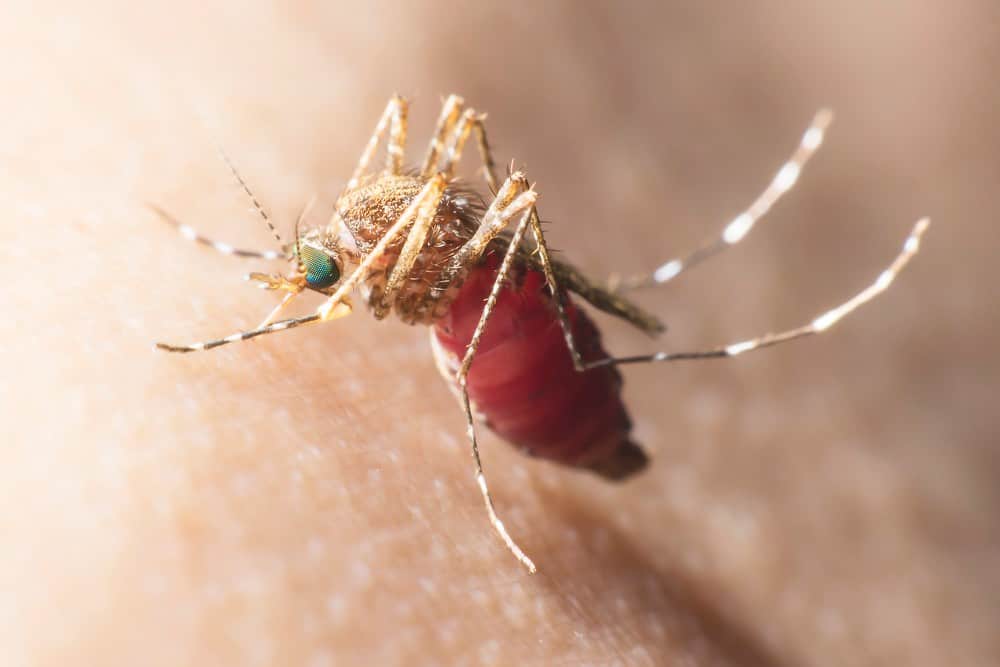
Scientists know that DEET interferes with the olfactory receptors of mosquitoes. However, there is some disagreement regarding exactly how DEET works. Some scientists believe that DEET prevents mosquitoes from recognizing users as a source of food. Others believe the scent is simply so unpleasant that mosquitoes don’t wish to come near it.
For example, one study in 2008 found that DEET appears to affect certain scent receptors in insects. This leaves them confused and ‘blinded’ to the scent of prey. If this is true, DEET itself doesn’t repel mosquitoes, instead, it makes the user invisible to them.
However, another study in the same year suggested that mosquitoes are able to smell DEET. Researchers, in this case, came to the conclusion that DEET is effective simply because mosquitoes find the scent offensive. No matter what the truth is, DEET is certainly effective at keeping mosquitoes away, but it doesn’t actually kill them.
For those who wish to avoid chemical repellents, there are many natural alternatives on the market. These products almost always contain a combination of essential oils to repel insects.
Essential oils are extracted from plants. Many of these oils contain chemicals such as linalool, geraniol, citronellol, limonene, and eucalyptol. All these chemicals have natural insect repelling properties. Studies have found them to be effective at keeping insects away for two to four hours after application.
Mosquitoes are understood to dislike the strong odor of essential oils. Citronella oil has been used for centuries as an insect repellent. Today, it is still one of the most common ingredients used in natural insect repellents.
Commercially available repellents which utilize essential oils will dilute them with ingredients like castor oil, alcohol and water. This is because pure essential oils can irritate the skin.
How to Decide on Which Type of Repellent to Use
When deciding upon the right mosquito repellent to use, there are a number of things you should consider.
First and foremost is the method of application. Mosquito repellents are available in a wide range of formulations. The best option for you will depend on your situation and personal preference.
For example, sprays are easier to apply to the hard to reach areas of your body and can deliver a fine layer of repellent onto clothing. This is useful if you are in an area which has a severe mosquito problem and you need to make sure you are fully covered. This is especially true as it gets later in the day, as mosquitoes tend to become more active in the evening.
On the other hand, roll-on sticks and wipes may be a better choice if you have young children that need protection but dislike sprays.
Another important thing to look for is the length of time a repellent will offer protection. Usually, this will be made clear in a numeric rating or graphic on the packaging. If you are not sure, the product label should give you information about the concentration of active ingredients. The higher the percentage, the stronger the formulation and the longer it will last.
The best advice is to look for a repellent which will offer you at least one hour of protection from the very first application. Products that contain DEET at low concentrations of five to seven percent will still offer around 90 minutes of protection after being applied.
Of course, this can vary depending upon your activity levels. If you are relaxing in the yard you will likely remain protected for the full period of time stated. However, if you are sweating, or go swimming, you will need to apply repellent more frequently.
The Centers for Disease Control and Prevention (CDC) advises the use of products which use any of the following active ingredients for long-lasting protection:
- DEET
- Picaridin, a similar chemical to DEET
- Essential oils
When reading labels, be aware that ingredients such as DEET may be listed as their chemical name. For example ‘N,N-diethyl-m-toluamide’ instead of ‘DEET’.
Furthermore, if you have sensitive skin or are prone to allergies, it is recommended to check the inactive ingredients used in a formula. These ingredients do not affect how the product works, so you can always choose another product with the same active ingredient should you need to.
Some repellents will also include sunscreen. While this may seem like a great multi-functional option, these products are best avoided. By combining the two products in one, the effectiveness of both the sunscreen and the repellent is lessened.
When choosing a repellent, be sure to read the labels carefully. Some products can be unsuitable for young children, or from prodecting toddlers and babies from mosquito bites. DEET shouldn’t be applied to infants under two months old. In some cases, products containing lemon and eucalyptus cannot be used on children under three years old.
Best Mosquito Repellents
As we have seen, choosing the right mosquito repellent for your needs can be difficult.
In this section, we intend to make your life easier by showing you some of the top repellents on the market.
Ben’s 30% DEET Mosquito and Insect Repellent
Ben’s 30% DEET mosquito and insect repellent contains the minimum concentration of DEET required for protection against bites. This is a great option for people who have sensitive skin and want adequate protection without going overboard.
This super-effective formula offers at least eight hours of protection against mosquitoes and other biting insects. Simply apply once and get on with your activities without having to worry about pesky bugs.
The long-lasting effects are due to the water-based formula. Ben’s 30% DEET mosquito and insect repellent doesn’t absorb into your skin. Instead, it remains on the skin surface where it is required.
The spray pump bottle makes the formula very easy to apply. Furthermore, there is no unpleasant smell with this product. Ben’s 30% DEET mosquito and insect repellent is completely fragrance-free. This is a bonus for those who find the smell of DEET products offensive.
The 3.4-ounce bottle is also a superb option when traveling or hiking. Being able to easily fit the bottle into a trouser or backpack pocket makes this repellent a convenient choice.
Mosquito Guard Natural Repellent Spray
The first natural option on our list, Mosquito Guard natural repellent spray, is completely free from synthetic chemicals. Mosquito Guard is instead packed with non-toxic, natural ingredients that are clinically proven to keep mosquitoes away.
Using only the plant-based essential oils of citronella, lemongrass, peppermint and geraniol, this repellent can effectively ward off mosquitoes for up to three hours. Such strong-smelling oils are known to be efficient at deterring mosquitoes from coming near.
While insects may despise the smell, this spray has a pleasant, refreshing scent to humans. The spray is light, non-greasy and is gentle on sensitive skin.
Whether you are out in the yard on a warm evening or on a camping trip, this repellent is a perfect natural choice for the whole family. We also have a list of the best mosquito yard sprays reviewed here.
Bugger Off—Mosquito Repellent Bracelets
If you hate the messy application of sprays and lotions, mosquito repellent bracelets could be for you.
Bugger Off bracelets offer a simple and convenient alternative to repel mosquitoes. Natural and 100 percent DEET free, these colorful bands are safe and comfortable for both kids and adults. Each bracelet is infused with citronella essential oil, which can protect the wearer against biting insects for up to 300 hours or 12 days.
Manufactured from high-quality EVA, each bracelet is extremely stretchy and soft to the touch. They are durable and will not scratch the skin or snag on your clothing. As an added benefit, Bugger Off bracelets are also completely waterproof.
Bugger Off bands are available in six colors. Each pack contains 12 bracelets which should be more than enough for the whole family to enjoy the great outdoors mosquito-free. If you are unlikely to use all 12 at once, the bag is resealable to preserve the effectiveness of the remaining bracelets until you are ready to use them.
SallyeAnder DEET Free Preventive & After-Bite Cream
SallyeAnder DEET free preventive & after-bite cream is an all-natural solution to mosquito bites. Acting as an all-in-one product, this cream can be used to repel mosquitoes and also treat other bites you may have previously received.
SallyeAnder DEET free preventive & after-bite cream is completely free from parabens, sulfates, alcohols, artificial dyes, fragrances, chemicals, and animal products. It uses a unique blend of 18 essential plant oils to deter mosquitoes while soothing the skin. The formula is completely safe for use on children and leaves skin silky soft.
This cream is very easy to use. Simply dab a few dots onto the skin and blend them together for up to four hours of protection. If you already have some itchy bites, apply directly to the affected area for immediate relief.
SallyeAnder DEET free preventive & after-bite cream is available in convenient travel-sized two-ounce pots, or a larger eight-ounce pot.
How to Use Mosquito Repellents Effectively
When using mosquito repellents, it is important to follow the directions provided on the product label. However, there are a few other considerations to keep in mind when using mosquito repellents to boost their effectiveness.
If you are going to be using sunscreen alongside mosquito repellent, you should apply the sunscreen first. Once it has absorbed into the skin, you can then apply your repellent over the top. If you need to put more sunscreen on later, you do not always need to re-apply the repellent too. Only re-apply repellent if a few hours have passed or if you feel that mosquitoes are starting to take an interest in you again.
Products that combine sunscreen and mosquito repellent are not recommended by the CDC. This is because sunscreen has to be applied more frequently than mosquito repellents. The user will end up over-applying repellent when it isn’t required. Also, by combining the two products in one, the effects of both become weaker.
When applying repellent, every inch of exposed skin should be covered. Mosquitoes can be aggressive in pursuit of a meal, so they will locate and bite any patch of skin unprotected.
If using a spray, the bottle should be shaken well before applying. Spray the repellent onto your skin and over clothing from four to eight inches away, or as directed on the label. Most lotions will require only a thin application onto the skin. Do not tell yourself that more is better. Sometimes applying too much repellent will simply irritate the skin.
If possible, try to apply sprays in a well-ventilated area. Also be sure to avoid naked flames when applying.
Almost all repellents can be safely applied to your face, but check the directions first. Sprays should be sprayed into your hands and then applied to your face. Never spray the repellent directly onto your face. Use the same method to apply repellent to your ears, neck, throat and top of head if you are bald.
If you have any open wounds or broken/irritated skin, try to avoid these areas when applying repellent.
Always wash your hands before eating if you have recently applied mosquito repellent. The chemicals and essential oils used in these products should not be ingested.
Re-apply the repellent as frequently as the label dictates. The amount of time between applications will vary depending on the strength of the ingredients. Other factors that can impact the effectiveness and length of your protection include:
- Perspiration
- Exercise and playing sports
- Temperature of the air
- Exposure to water/swimming
- Humidity
- How attractive you usually are to biting insects
Mosquito Repellent Risks & Precautions
Mosquito repellents are generally safe for use as long as they are used as directed. However, there are some risks and precautions that users should be aware of when using these products.
Risks vary according to the primary active ingredient used in the repellent formula. We will take a look at the risks surrounding DEET and essential oils in turn below.
DEET
The use of DEET has prompted controversy over the years. Many people feel uncomfortable with the idea of using a chemical that is able to melt plastic directly on their skin. However, there have been numerous studies into the effects of this chemical on human health, all of which have concluded that DEET is safe for topical use. It is possible you may experience a skin reaction to DEET, but this is extremely rare.

DEET should be kept away from children as it can be dangerous if ingested. Even if the child appears well, you should seek immediate medical advice if you believe they have consumed DEET. Ingesting DEET can cause stomach cramps, vomiting and nausea.
If this chemical gets into your eyes, it will cause tearing, pain and irritation. You should rinse the eyes well with clean water. If you find your vision is blurred and is not improving after an hour or two, you should get advice from your doctor.
Leaving DEET products on the skin for extended periods of time can result in irritation, rash, redness and sometimes swelling. Do not leave DEET on the skin longer than necessary.
In very rare cases, people have experienced seizures after becoming exposed to DEET. In these unusual cases, the sufferer has usually ignored the product directions or willingly consumed DEET against advice.
Essential Oils
People who avoid chemical repellents must also understand that natural doesn’t automatically mean safe. Just because a product is chemical-free, doesn’t give the user free-reign to use it however they like.
The vast majority of natural mosquito repellents will use essential oils. These oils are extracted from plants by numerous methods, all resulting in a concentrated substance containing plant-based chemicals. Essential oils are generally safe for topical use in humans.
In some cases, they can cause skin irritation. Insufficiently diluted oils can result in skin rashes and a burning sensation on the skin.
Essential oils shouldn’t be ingested as they can have toxic effects. In fact, significant poisoning can occur if even a small quantity of some essential oils is consumed.
These products should always be kept well out of the reach of children. Small children are much more likely to ingest essential oils as they usually have a pleasant smell.
Once ingested, essential oils can cause a toxic reaction within 30 minutes. The severity of the symptoms will depend on the quantity and type of oil consumed. Even a small amount can make a child very sick.
Symptoms of essential oil poisoning include:
- Coughing, gagging, shortness of breath and wheezing
- Shallow breathing, drowsiness and coma
- Seizures and muscle twitching
- Vomiting, diarrhea and nausea
- Dizziness
- Stomach pains
It isn’t just children that are at serious risk of poisoning by essential oils. These chemicals also pose grave danger to your pet.
Many ingredients which are completely safe and non-toxic for people can be poisonous to your pet. Cat’s are very sensitive to toxins, especially essential oils. They lack an enzyme in the liver which enables them to break down toxins effectively.
Any product containing DEET or essential oils should be kept away from pets. Below is a list of some of the essential oils which are known to be toxic to animals:
- Peppermint
- Citrus oil
- Sweet birch
- Tea tree
- Eucalyptus
- Citronella
- Lemon
- Clove
- Cinnamon
- Pine
- Wintergreen
- Lavender
- Ylang ylang
If your cat or dog has been poisoned, they will start to act strangely. Common symptoms include:
- Anxiety and hiding
- Wobbliness
- Vomiting
- Drooling
- Trouble breathing
- Tremors
- Slow heartbeat
If you are concerned that your pet may have ingested something toxic, such as mosquito repellent, you should get help right away. Call the Animal Poison Control Center on (855) 764-7661 as soon as possible to avoid serious internal damage or death.
Summary
As we have seen, there is a wide variety of options available when it comes to mosquito repellents. Chemical repellents that use DEET are known to be very long-lasting and effective at keeping mosquitoes away. Natural alternatives that use essential oils are also a great solution, but often need to be re-applied more frequently.
Whichever you choose, you should always follow the instructions very carefully for best results. Keep all repellents well out of the reach of children and pets to avoid dangerous consequences.
So long as you use mosquito repellents according to directions, you can enjoy being mosquito-free without any risks.

